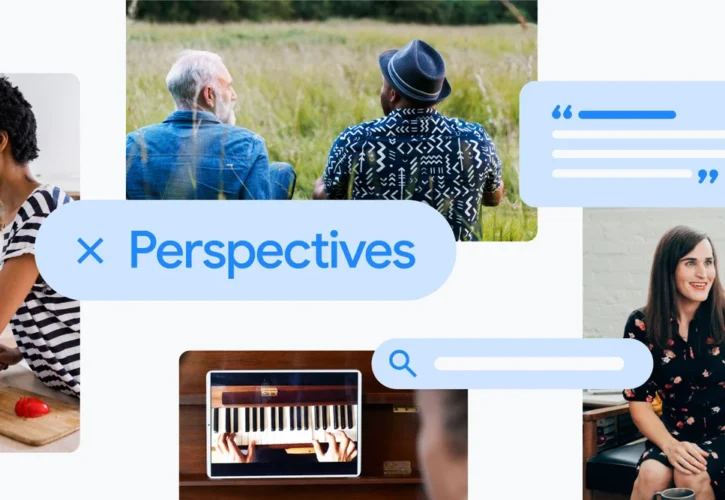
Google Perspectives: A New Way to See Search
Focused on solidifying their positioning in the market, Google have announced their launching of a new Perspectives search feed. This is very smart timing. Reddit is in the midst of a user protest, Twitter has announced its ad revenue has halved, Meta launched Threads – which was estimated to half in size within a week. Alas, Perspective’s announcement was well timed.
What are Perspectives?
Using advances in generative AI to power them, Perspectives culminates long- and short-form videos, images and written posts. Pulling these into a new playground, Perspectives looks to bring a vastly greater focus on both content and unique expertise and experience.
It gives a more holistic view of a topic by combining different types of content from different sources. The feed includes videos from YouTube and TikTok, community discussions from Quora, social content from TikTok, and FAQs from Google Search.
The goal of Perspectives is to help users to see different perspectives on a topic and to get a better understanding of the topic as a whole. By combining different types of content, Perspectives can help users to see the topic from different angles and to understand the different ways that people think about it.
How brands can be visible in Perspectives
The launch opens up access to brand’s content across owned platforms, making it crucial for brands to create a consistent user experience. Otherwise, disconnect can lead users to question authenticity, which can have a negative impact on metrics like trust and engagement. Additionally, a consistent user experience helps to reduce bias by providing users with a variety of perspectives on a topic – to decide for themselves.
What brands should keep front of mind
To remain visible in Perspectives, brands should focus on the following:
- Publish content regularly. This will keep your brand top of mind and make it more likely that your content will be seen by people who are interested in the topics you cover.
- Create audience-centric content. Use enhanced keyword research to identify topics that your people are searching for and create content that addresses needs.
- Share content consistently across platforms and encourage engagement. The more views, likes, and comments content gets, the more likely it is to be seen in Perspectives.
- Host discussions on your site. User-generated content (UGC) is highly valued by Perspectives. When users can directly contribute to discussions on-site, they’re essentially creating content for you that you can then share.
Looking to some practical steps:
- If a page is on the decline, refresh it to give it a new lease of life
- If a page is working well, make it a hub – building spoke content off this
- If content has decayed, remove it
- To gather questions, use Reddit/Quora in the keyword research process
- To make existing assets work harder, make sure they are well optimised.
- To optimise effectively, make sure to embed relevant questions/keywords throughout.
- Ensure that the sites pages are rich for users and easy to navigate.
- Promote content on social and across your ecosystem of owned platforms.
- Track performance closely to see what is resonating with users.
- Continuously review and update your strategy to ensure that it is aligned with the latest trends and user needs.
Summary
Perspectives offers brands an array of opportunities to reach a wider audience and build trust with users. By creating a consistent and relevant experience, brands can increase their chances of being featured. Additionally, brands can track performance uplift of their content to see how it is resonating with users in the real world.
Quality, helpful, and audience relevant content is what Google is looking to prioritise in Search results. Wherever the source of that content is platform wise, whatever the format (whether image, video or snippets). This will require businesses prioritising creating content – else fall behind.
If you want to learn more – do get in contact here!
Image source: Google The Keyword – Learn from others’ experiences with more perspectives on Search





